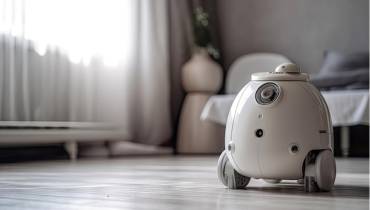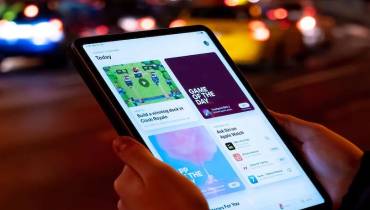How to Organize Remote Work & Sustain Efficient Operations Amidst COVID-19

With countries working hard to “flatten the (COVID-19) curve,” more people are working from home and companies are taking to remote operations.
At first, this may seem like a dream for those who despise the daily commute to work. However, many people quickly learn that the experience can be twice harder than going through tasks and meetings in an office environment.
If you are not used to working at home, your productivity can suffer because of the distractions in your house. You’re not working in your usual professional environment.
As such, it is easy to blur the line between personal and work space. Just as you’re about to get your day started, you see the pile of laundry that has to be washed. Once you’ve coaxed yourself into working, you see the TV and realize that you’re free to stream Netflix while answering your emails. Why wouldn’t you do it—your house, your rules, right?
Even if you have the willpower to ignore distractions around the house, you may still have the urge to check the news. After all, we are in a pandemic and the government seems to have no idea how to handle the situation. An hour later, you’ll find yourself going through every COVID-related hashtag on Twitter.
So, amidst the anxiety and the constant distractions, how do you keep yourself focused at work?
Master the Art of Working from Home and Staying Organized
You will be surprised to learn that a lot of people have been mastering the art of “working from home” for many years. Remote workers who have been in the industry for quite some time have developed a set of skills to keep them productive without developing cabin fever.
Contrary to popular belief, these freelancers did not have to adopt a hermit-like, secluded lifestyle. Ironically, even in isolation, they can still stay connected to the outside world.
So, in this post, we will show you how to stay productive while working from home during the COVID-19 pandemic.

1. Designate an Area for Your Work
When choosing your workspace in your home, you need to find an area that other members of your household won’t intrude into. This way, you can concentrate without their disruptions.
Instead of checking and answering emails in front of the TV or spreading your work essentials on the kitchen table, have a designated area that you can call your “office”.
Of course, this space should be conducive to concentration and productivity. Now, if you don’t have a separate room for this, select an area with minimum traffic flow.
2. Drown the Noise with Headphones or Earbuds
It’s extremely difficult to focus at work when your neighbor’s dog is experiencing cabin fever and won’t stop barking. Now, if you don’t have a separate room for your home office, the ambient traffic or excess noise from people in your home can be distracting.
So, if you want to focus on your work and remain productive, use noise-cancelling headphones or earbuds. There are plenty of music or nature sounds that will help you concentrate and keep your brain calm. You can even listen to music that helps regulate your blood pressure and heart rate.
3. Use the Right Tools
One of the best productivity tips for working from home is to get the right tools for the setup. This will determine whether your experience will be turbulent or you’ll transition smoothly into the “new normal.”
For example, if you’re in a remote team, it’s essential to have collaboration apps like Slack and Asana. These platforms will help you manage projects.
Meanwhile, Zoom will be your partner for reliable, high-quality video conferencing. It has an easy, reliable cloud platform for video and audio conferencing, chat, as well as webinars.
And, if you want to maximize your productivity while you’re in isolation, you should use a task monitoring app like Traqq. Traqq has an app and website monitoring feature that lets you determine how much time you dedicate to certain programs and sites. That way, you will know if you’re wasting too much time scrolling through Twitter or reading The New Yorker.
4. Set Boundaries
If you don’t live alone, working from home can be quite challenging for you.
Since schools are cancelled due to COVID-19, the kids are at home. And because everyone else is advised to stay at home, your roommates and loved ones are probably also stuck indoors with you. That can become an issue when you are working from home.
Now, it is important that you set physical boundaries around your designated work area. Let everyone in the house know that the space is off-limits for them. Tell them that they are only allowed to interrupt you if there is an emergency.
5. Know When to Call It a Day
It would be helpful if you could follow a routine. For instance, if you normally take a bath before leaving for work, do the same while you’re in quarantine. Just because your co-workers can’t smell you, it doesn’t mean you won’t take a bath until everything goes back to normal.
While it may be comfy to work in your birthday suit or your jammies, try changing into something more semi-casual. This way, you can separate relaxation from actual work.
Now, after a day’s work, you should do your best to forget about your projects, reports, and co-workers. Put your office tools and electronic devices away and “go home”. Make sure they are out of sight so you can truly relax and recharge.
6. Prioritize Your Mental Health
If you want to get through this pandemic in one piece, you should not forget about your mental health. WFH or “work from home” is quickly becoming a popular trend, especially since most countries are promoting social distancing. However, as we’ve mentioned, it is not as easy as it seems. You’ll need focused discipline under daily work situations.
Unfortunately, the times we’re living in are anything but ordinary. You’re juggling your daily work tasks and household chores in your hands. While you’re doing that, you find that regular grocery runs look like a scene from The Hunger Games. People are hoarding rice and toilet paper as if these items will save them from the virus. And it’s just getting harder and harder to keep yourself sane while creating a semblance of normalcy in your life.
If you want to keep working at optimum levels, you need to take care of your mental health too. Some of the recommended ways to be productive during COID-19 and a pandemic like it without losing your sanity, include:
- Follow a structure – Your brain fares well with routines. It prevents your mind from experiencing decision fatigue. What’s more, it will give you comfort amidst perilous times.
- Work efficiently – You don’t have to work hard. What you need to do is to work smart. The key is to always keep the urgent and important tasks at the top of your priority list. This way, you’ll always know when to call it a day.
- Take care of yourself – You should understand that things that were a wee bit stressful before are now three times more challenging because of the pandemic. Aside from keeping yourself hydrated, eating healthy, and getting daily exercise, you should also take care of your mental health.
- Connect with other people – Just because you’re in isolation, it doesn’t mean that you should forget about your friends and loved ones. This is the time to use your video communication tools more than you normally would. Don’t let yourself feel alone during this crisis. Your workmates are in the same boat. So, stay connected with them and share each other’s burdens. Schedule virtual get-togethers with your relatives and friends. When you start feeling lonely, turn to your constant emotional supporters.
We hope our productivity tips for working from home during the quarantine have been beneficial for you. If you want to get more info on how you can make remote working easier, do not hesitate to browse through our blog posts.
We may be in isolation, but that won’t stop us from getting together virtually and helping each other through our work and personal lives.




















